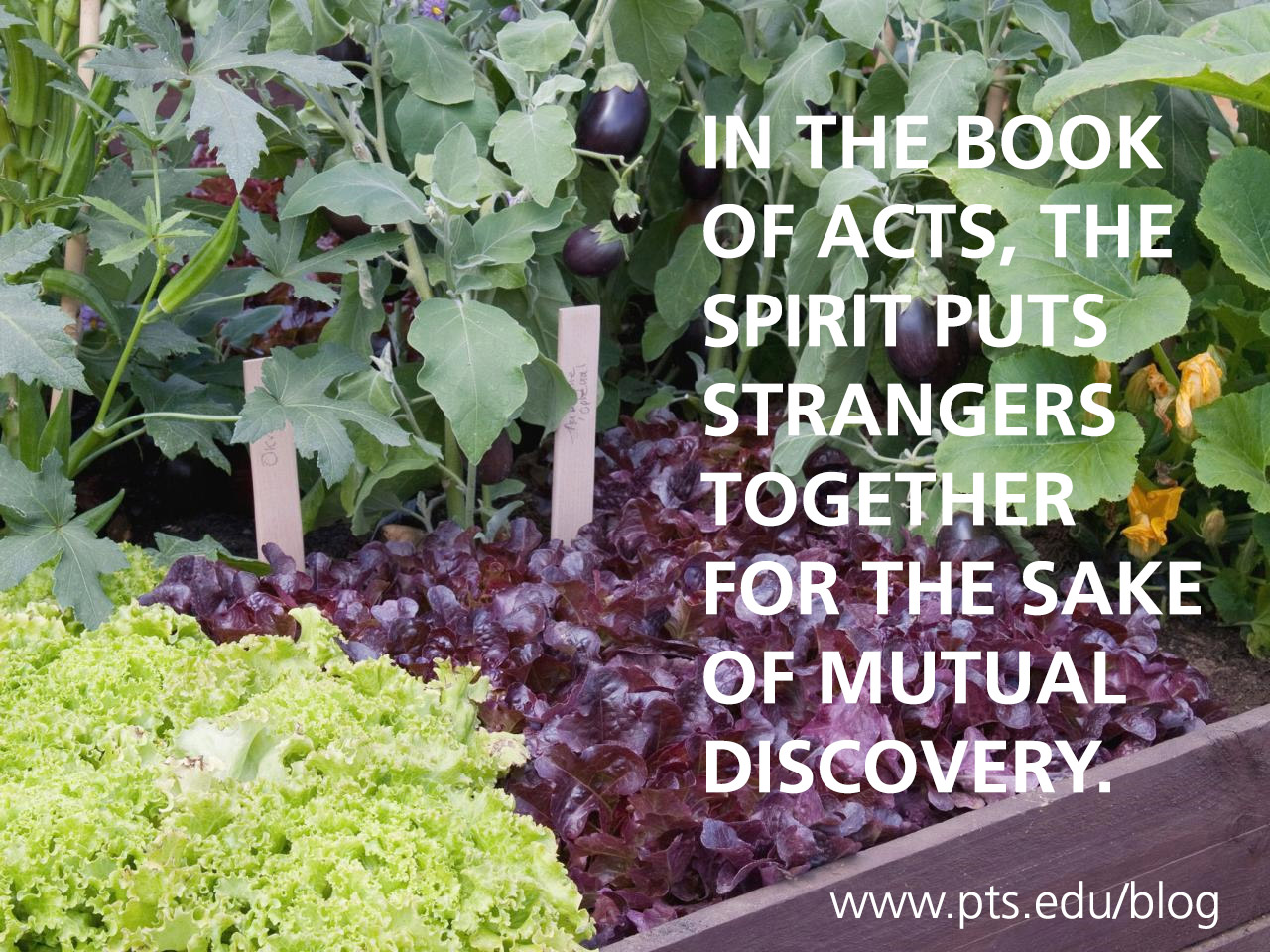I didn’t recognize the risk when I first strolled out of Home Depot with several eight-foot cedar boards and posts over my shoulder. I neglected to consider the possibility of failure when I started digging up my front yard. But when the cedar boards had been cut and built into an 8’x4’ box, and made into a raised garden bed in my front yard, my wife and I suddenly realized the public nature of our experiment in gardening. A neighbor watched us work all morning. After the box was put together and the front lawn dug up, he strolled across the street to wonder out loud why we would put a garden where everyone can see it, from which children can steal produce, and perfect strangers can pass judgment.
Gardening with an Audience
To be honest, we had not considered these possibilities when we began. We previously lived in a condo on the West coast, where yards were the luxury of the wealthy. The narrow strip of sun-bathed lawn out our front door looked like an ideal place for a garden. But our neighbor was right. The plants could be damaged by neighborhood kids looking for trouble. We might, in the end, only display our dismal gardening skills for the entire neighborhood. Perhaps we could have started smaller, in pots on our back porch. But we tried that for years living in a condo in Vancouver. And, living in a temperate rain forest, we managed to kill everything we ever planted. Our enthusiasm carried the day. We plunged ahead, our first foray in urban gardening.
As we filled the raised bed with soil, other neighbors and several strangers – on their way to grab coffee or walk their dogs in the park – stopped to reflect with us on our new venture. Several people offered advice; a few neighbors and strangers gave us seeds and starter plants. Over the course of the summer, a number of elderly folks made weekly trips to our front yard to offer advice, critique, and dispense decades of hard-earned gardening wisdom. We listened, asked questions, sometimes nodded without understanding what people said to us . . . but we continued to work the soil expectantly. Some crops were failures and some seeds didn’t take. But others grew so abundantly that we gave away produce for weeks: collard greens and kale, anyone? Seriously. Anyone?
Planting Safely
It seems to me that participation in God’s mission in post-Christendom North America looks a lot like our garden experiment. While many in our congregations recognize the need to engage new initiatives—participate in church planting or discover new ways to build community in their neighborhood—we tend to minimize risk, protect our reputation, and plant little safe experiments in our back yard. We tweak an existing program. We get crazy and serve coffee before Sunday worship. And, like gardening on our condo balcony in Vancouver, we tend to reap minimal benefits from playing it safe and saving our reputations.
Encountering God
I think the reason these safe experiments fail is because they keep our knowledge in-house, they simply work with what we already know and what we already believe to be true. They are an attempt to participate in God’s mission without the risk and disruption that comes from unexpected learning. But what if we decided to make our ignorance and uncertainty about mission in post-Christendom public? What if we decided to cultivate intentional spaces within our neighborhoods where we —the congregation or the church planter or the missional community leader—invite our neighbors to instruct us, to dispense wisdom, to share their gifts with us? Is it possible that God might lead and shape us through the gifts, wisdom, and concerns of our neighbors? Is it possible that we might be surprised where we encounter God?
In the book of Acts, the Spirit puts strangers together for the sake of mutual discovery. Cornelius discovers God’s grace in Jesus Christ, and Peter discovers God’s acceptance of Gentiles. An Ethiopian official discovers new depths to Isaiah’s prophecies and Philip discovers the boundary-breaking grace of God. Perhaps it is time we dig up the dirt in our front yards without a full consideration of the risks it entails. Seriously . . . collards . . . anyone?
Dr. Scott Hagley is associate professor of missiology and also works with the Seminary’s Church Planting Initiative and teaches in the MDiv Church Planting Emphasis program as well as the new Church Planting and Revitalization certificate program. He previously served as director of education at Forge Canada in Surrey, British Columbia, where he worked to develop curriculum for the formation of missional leaders in hubs across Canada.


I really like this simple analogy, Scott. Well said.